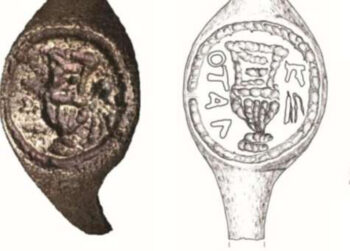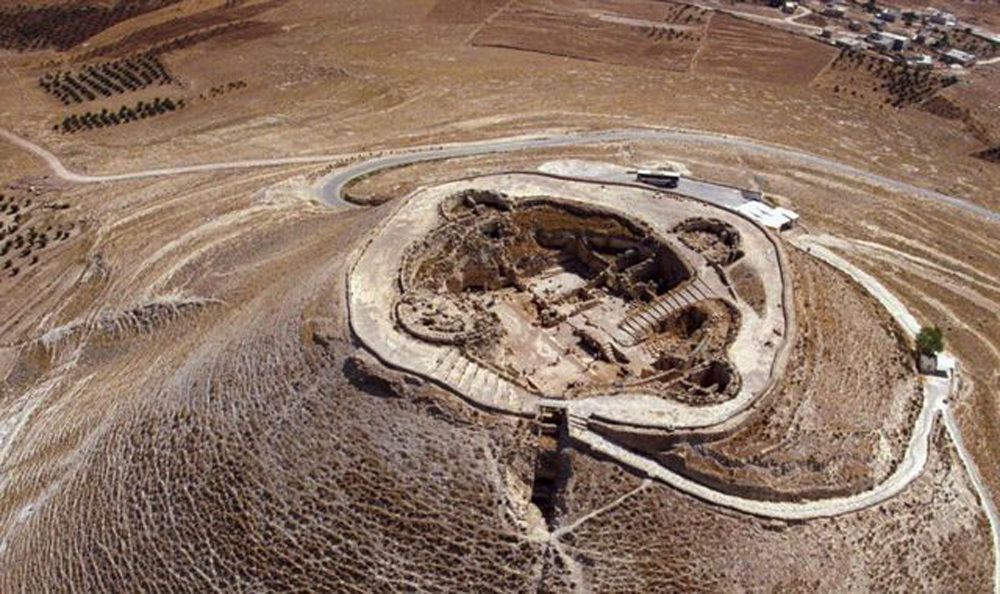By Mark Ellis —

A bronze sealing ring discovered 50 years ago at an excavation near Bethlehem has been identified as bearing the name of Pontius Pilate, the Roman governor who ordered the crucifixion of Jesus, according to a report by Ha’aretz.
A special camera used by the Israel Antiquities Authority labs revealed that the Greek letters on the ring spelled “Pilatus.” The words were formed around the depiction of a wine vessel.
“I don’t know of any other Pilatus from the period and the ring shows he was a person of stature and wealth,” Hebrew University Professor Danny Schwartz told Ha’aretz.

The name was so rare in Israel at that time it could only have belonged to one man – the man who played such a dramatic role in the last hours of Jesus’ earthly life.
It was not a common ring, but a sealing ring, used to seal official letters and documents with melted wax. Researchers believe it was used by the governor to authenticate his signature, according to Ha’aretz.
“Adding weight to the possibility that this ring belonged to the Pontius Pilate of the New Testament is the fact that this type of ring was a ‘hallmark’ of the cavalry in the Roman era, to which Pilate belonged,” Ha’aretz noted.
The ring was originally found by Hebrew University Professor Gideon Forster shortly after the Six-Day War in 1968-69, Ha’aretz reported.
Archeologists previously validated the historicity of Pilate’s life through an inscription known as the Pilate Stone, which establishes his title as fifth prefect of the Roman province of Judea.
Pilate also received mention by the historian Tacitus; Philo of Alexandria; Josephus; the four canonical gospels; the book of Acts and First Timothy.
In the Scripture, Pilate sought to avoid personal responsibility for the crucifixion of Jesus. He washed his hands to show that he was not responsible for Jesus’ death and reluctantly sent him to a cross at Calvary. He did not recognize the essential truth that God sent His only Son to die for the sins of the world.
While Pilate served in Judea for Rome, he often offended the religious sensibilities of the Jews, leading to severe criticism from the philosopher Philo, and Josephus, the Romano-Jewish scholar and historian.
If you want to know more about a personal relationship with God, go here




Very exciting find..all these archeological finds that co-incide with the Bible record are valuable to share with the lost.
Comments are closed.